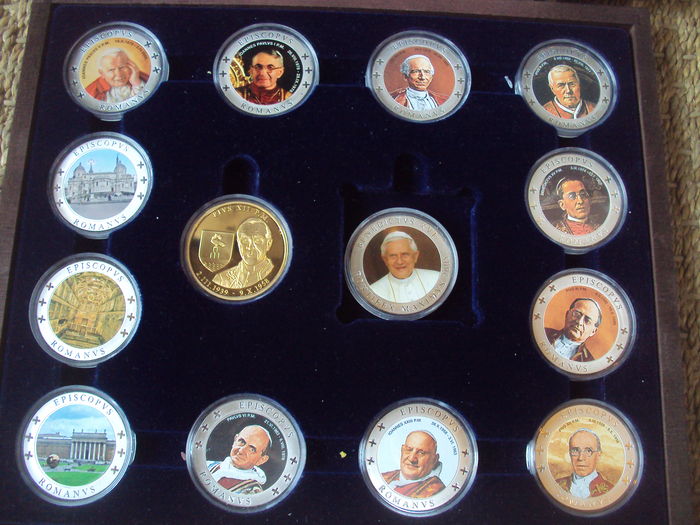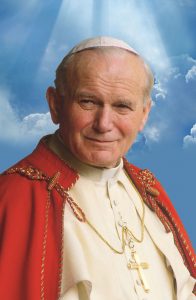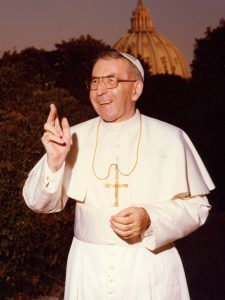Francis and other 20th Century Popes: Part One – Triumphs (2)

✦ As it faces the modern world, Pope Leo XIII opened up another area of magisterial reflection for the Church, the area of social justice, initially regarding exploited workers and their rights.
Successive popes, beginning with Benedict XV, broadened this concern, notably to include issues of peace. These concerns were featured in the Vatican II decree Gaudium et Spes. Benedict XVI (2005-2013) linked justice and charity, and Francis is linking justice and the environment, laid waste through heedless and short-term efforts at economic development.

John Paul 2. Source: papal archives
✦ Prior to the 20th century the Church’s attitude towards dialogue with sister Churches and with other religions was at best guarded and defensive. Gradually, discreet encounters were permitted with certain churches. Vatican II included non-Catholic observers and opened the doors much wider with documents on ecumenism and world religions.
Pope Paul VI had ground-breaking meetings with Orthodox and Anglican leaders and authorized a number of ecumenical dialogues. In continuing this policy John Paul II was especially open to dialogue with non-Christian religions. Francis has further developed this new form of outreach, going out of his way to meet fellow Christians and believers on their own turfs.
✦ Some popes have been recognized as pastors close to the people, and the people have taken them to heart. This was an outstanding characteristic of St. Pius X (1903-1915). John XXIII was known as the good Pope John, and many non-Catholics spontaneously recognized him as their pope.

John Paul 1. Source:theunredacted.com
Pope John Paul I warmed the hearts of many during his month long term with his simplicity and desire to reach out to ordinary folk. And this is one of the outstanding characteristics of Pope Francis.
Far from being a papal maverick or a radical innovator, Francis takes up the patterns inaugurated by his 20th century predecessors and carries them further. He does so with an accent of his own, stemming from his Latin American background.
All of the movements we have described come to a head in him: he is a world leader, he has taken strong ecumenical initiatives, he is concerned with social justice and ecology, he is in every way a pastor with a special attention for the marginalized and the wounded.
At the same time he is the subject of constant criticism by a vocal minority within the Church. For him and for his predecessors, triumph and tribulation coexist. Tribulation does not take away from triumph, but deepens and solidifies it. More on this in the next blog.




Deacon Vincent W. Catalano, retired
Posted at 12:26h, 13 JuneThank you for the clarification setting out the recent historical and more recent attributes of a series of popes. I became frustrated with the critics of our current pope and their ultra conservative views. Look forward to the next article.